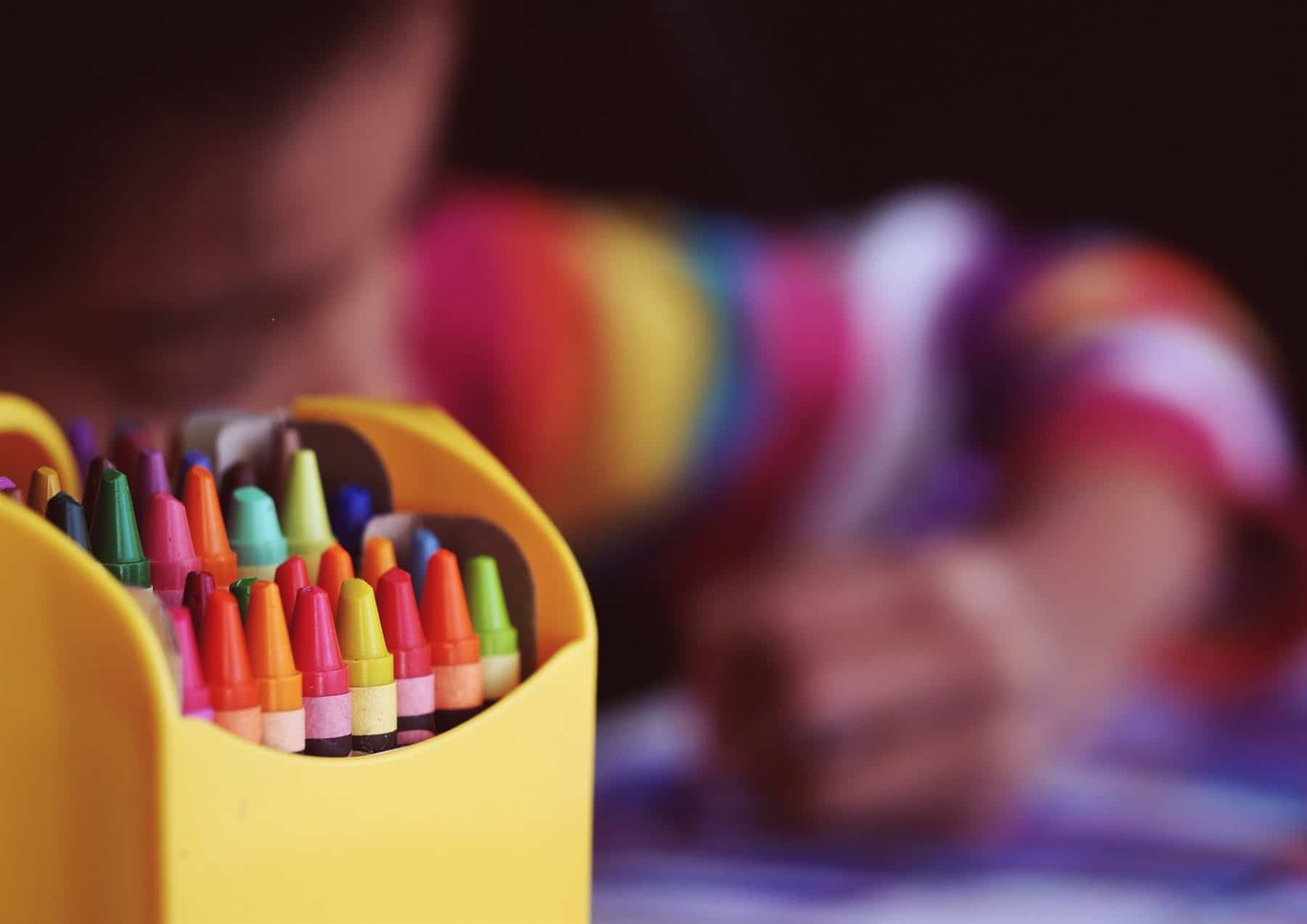 As summer ended, I prepared to send my first child off to kindergarten. A mix of excitement and anxious thoughts flooded my mind. My husband and I went over every detail of that big first day with our daughter and what it might be like. We talked with excitement to her about how much fun it will be to start this new chapter and how she will be making friends that may become her lifelong friends.
As summer ended, I prepared to send my first child off to kindergarten. A mix of excitement and anxious thoughts flooded my mind. My husband and I went over every detail of that big first day with our daughter and what it might be like. We talked with excitement to her about how much fun it will be to start this new chapter and how she will be making friends that may become her lifelong friends.
When we decided to send our daughter to public school this fall it was not a decision that we made lightly. She is the youngest in her class, turning 5 years old a few short weeks before the August cutoff date. While she is one of the youngest in age and smallest in stature, she is very bright and loves to learn.
For selfish reasons, I tried to delay entry into the world of school. My daughter has a summer birthday, so I expressed my desire to wait a year until she is one of the oldest to enroll her to her preschool teachers. Her teachers reassured me that she was more than ready to take on the world of kindergarten. I know many mamas are ready to send their little ones off to school, but for me full time school means a loss of something precious.
As a stay at home mom, it is the loss of my position as the person that my daughter relies on to answer her questions Monday through Friday from 9AM to 4PM. It is the loss of 35 waking hours together each week.
My husband and I both grew up in public schools. Even 25 years ago, my beliefs about family were in the minority and I loved the opportunity to learn from my classmates about their different experiences. The public school system allows students to be challenged and learn alongside peers of diverse backgrounds, cultural beliefs and practices.
As a parent of a child in the public school system, it is my responsibility to ensure that I am intimately familiar with what is being taught in the core educational areas in my daughter’s classroom. I also need to know what curriculum requirements are in place at the state and federal level and to understand the nuances within our district. In discussions with fellow moms sending their children off to school this fall, I shared my concern about topics that are now part of kindergarten curriculum across the United States.
Through my work, I have learned that Planned Parenthood of America is the leading provider of sexual education instruction to 1.2 million people in the United States each year. Knowing this, while preparing my daughter for school, I went straight to the source, Planned Parenthood’s website to do some research. A simple web query will inform you that it is widely recommended that Comprehensive Sexual Education (CSE) begin in kindergarten and progress through graduation at 12th grade.
Pause with me for a second, Comprehensive Sexual Education begins in kindergarten.
The Sexuality Information and Education Council of the United States (SIECUS) is a leader in development and distribution of CSE. SIECUS was founded in 1964 by Dr. Mary Calderone who spent some time as the Medical Director for Planned Parenthood Federation. SIECUS is an independent non-profit that advocates through policy change for human sexuality instruction. In the 1990s SIECUS expanded their focus to policy makers and communities.
Guidelines for Comprehensive Sexuality Education were developed by a SIECUS work group in which Planned Parenthood of America was well represented. SIECUS values and goals list an intent,
“to provide an opportunity for young people to question, explore, and assess their own and their community’s attitudes about society, gender, and sexuality. This can help young people understand their family’s values, develop their own values, improve critical-thinking skills, increase self-esteem and self-efficacy, and develop insights concerning relationships with family members, individuals of all genders, sexual partners, and society at large.”
When a task force starts talking about recommending a curriculum for my kindergartener to start exploring gender and sexuality, I start to feel uneasy. Children should learn about their bodies and how they were designed to function and interact with others. I am not opposed to my child learning biological truths that will empower her to make decisions that protect her body and self. However, reading through SIECUS Guidelines I question the ability of this group to define what topics related to human sexuality are appropriate at each grade level in a school setting. To take it a step further, I find some of the recommended curriculum inappropriate at any school age level.
Within the guidelines developed by SIECUS here are some of the developmental messages for level one aimed at children age 5 through 8:
- Love means having deep and warm feelings about oneself and others
- Many people live in lifetime committed relationships, even though they may not be legally married.
- Two people of the same gender can live in loving, lifetime committed relationships.
- People who are married or committed to each other may get divorced or break up if they decide they do not want to be together anymore.
- Touching and rubbing one’s own genitals to feel good is called masturbation.
- Some boys and girls masturbate, and others do not.
- People often kiss, hug, touch, and engage in other sexual behaviors with one another to show caring and to feel good.
- Sometimes women become pregnant when they do not want to be or are unable to care for a child.
- Human beings can love people of the same gender and people of another gender.
- Gender identity refers to a person’s internal sense of being male, female, or a combination of these.
(published by SIECUS, the Sexuality Information and Education Council of the United States, 1012 14th Street NW, Suite 1108, Washington, DC 20005, www.siecus.org)
When I reviewed the content within the SIECUS Guidelines, beyond the kindergarten level, the curriculum exposes students to a full spectrum of sexual preferences, normalizes explicit sexual behavior, and works to desensitize children to sexuality in general.
I foster an environment in my home so that my children can bring up any question about their body, sex, relationships with others, or personal values. I pause when I look at American society and observe the pervasiveness of the concept of consequence-free sex, rampant sexual exploitation, and deterioration of intrapersonal relationships. Does indoctrinating our children to view sex as casual and relationships as disposable through CSE for thirteen years contribute to the above?
When I look at these standards, and the developmental messages aimed at kindergarteners and I think about my daughter.
I don’t object across the board to the guidelines, but there are many that I oppose. I take issue with defining love as feeling based and describing sexual behaviors to kindergarteners as something to do to show “caring” just to “feel good.” I am deeply concerned at the recommendation for a 5-8 year old to sit in on instruction regarding self touching alongside their classmates. It is a disservice to young children to normalize the message that pregnant women view their unborn children as unwanted and themselves as inadequate. These do not appear to be objective goals; many stand out as guidelines with an agenda.
For the parents of kindergartners attending school outside the home who don’t have sex-ed on the radar, you should. According to the most recent stats published by the Guttmacher Institute 39 states and Washington D.C. mandate sex-ed and/or HIV education. Approximately half of these states require parental notice, and four states (13%) require parental consent.
Curriculum requirements and leniency vary broadly from state to state. If sex-ed is not mandated by your state this does not mean that it is not taught in your child’s classroom. Where we used to live, in Washington state, sex-ed is not mandated on a state level. The decision regarding what to include in sex-ed curriculum is made at the district level. Washington Administrative Code includes that schools have the leeway to “choose to use separate, outside speakers or prepared curriculum to teach different content areas or units within the comprehensive sexual health program.” Note that the law refers to a comprehensive sexual health program.
At my daughter’s school, “Family Life” curriculum began on week two of school in science class. In the state of Tennessee as a parent, I have a right to review curriculum. My child has a right to be excused from Family Life curriculum. We have an opportunity to be informed consumers and our kids depend on it.
While the standards mandated by the state of Tennessee are more conservative, this does not mean that they align with our values as a family. I have requested copies of the curriculum and had a meeting with my daughter’s teacher. My husband and I will make decisions on what Family Life instruction, if any, our daughter will participate in.
It is simple to get involved. A good way to start is by going to your child’s school board website to review or request the curriculum. If you see something you are concerned about, say something, ask the hard questions. Feel empowered to begin taking a more active role in your child’s education.





Do you have any links to help find each states’ laws regarding this?
The SEICUS document actually looks like a great resource. It’s research-based and early sex-ed actually reduces teen pregnancy and abortion rates, not to mention STI’s. On the flip-side. Arkansas teaches abstinence-only and this Bible belt state has the highest teen pregnancy rate in the country. I’ve worked with pregnant 12 year olds. If early sex ed can help prevent that, I’m all for it. :/
My son is in Kindergarten. I will probably use some of the age appropriate information from SEICUS to supplement what he’s not getting in school. As a social worker and a Christian, I really think it is that important.